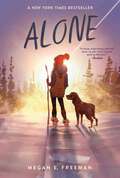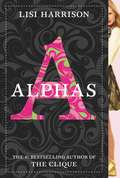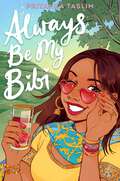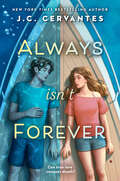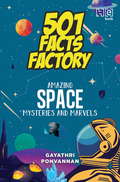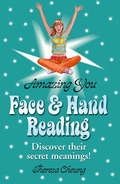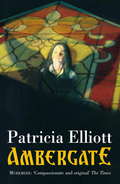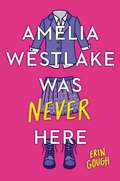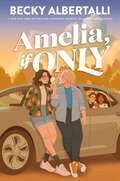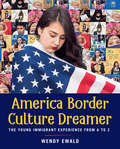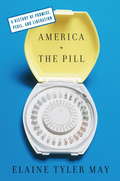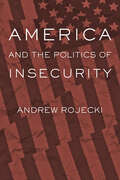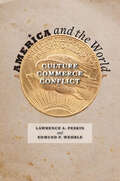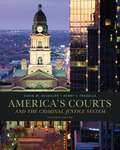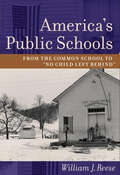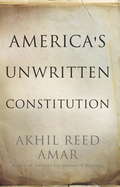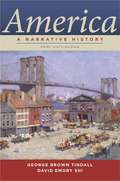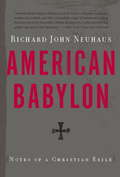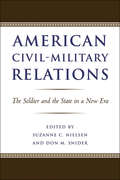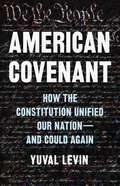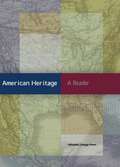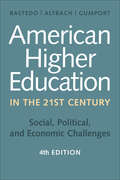- Table View
- List View
Alone: Poems By Megan E. Freeman (Alone)
by Megan E. FreemanA New York Times bestseller! Perfect for fans of Hatchet and the I Survived series, this harrowing middle grade debut novel-in-verse from a Pushcart Prize–nominated poet tells the story of a young girl who wakes up one day to find herself utterly alone in her small Colorado town.When twelve-year-old Maddie hatches a scheme for a secret sleepover with her two best friends, she ends up waking up to a nightmare. She&’s alone—left behind in a town that has been mysteriously evacuated and abandoned. With no one to rely on, no power, and no working phone lines or internet access, Maddie slowly learns to survive on her own. Her only companions are a Rottweiler named George and all the books she can read. After a rough start, Maddie learns to trust her own ingenuity and invents clever ways to survive in a place that has been deserted and forgotten. As months pass, she escapes natural disasters, looters, and wild animals. But Maddie&’s most formidable enemy is the crushing loneliness she faces every day. Can Maddie&’s stubborn will to survive carry her through the most frightening experience of her life?
Alphas (Alphas #1)
by Lisi HarrisonAt OCD the losers are tormented. At Alpha Academy, they're sent home. Skye Hamilton has scored an invitation to the ultra-exclusive Alphas-only boarding school where beta is spelled LBR . What happens when the country's best, brightest, and hawtest begin clawing and scratching their way to the top?
Always Be My Bibi
by Priyanka TaslimClueless meets Jenna Evans Welch in this young adult rom-com about a spoiled American teenager who faces some major culture shock—and potential romance—when she jets off to Bangladesh for her sister&’s wedding.Bibi Hossain was supposed to get her first kiss this summer. Too bad her father finds out and grounds her for breaking his most arcane rule: No boys until your sister gets married. Just when Bibi thinks she&’ll be stuck helping him at their popular fried chicken chain until school reopens, her oh-so-perfect older sister Halima drops a bombshell: she&’s marrying the heir of a princely estate turned tea garden in Bangladesh. Soon, Bibi is hopping on the next flight to Sylhet for Halima&’s Big Fat Bengali Wedding, hoping Abbu might even rethink the dating ban while they&’re there. Unfortunately, the stuffy Rahmans are a nightmare—especially Sohel, the groom&’s younger brother. The only thing they can agree on is that their siblings are not a good match. But as the two scheme to break their siblings up, Bibi finds it impossible to stay away from the infuriatingly handsome boy. Could her own happily ever after be brewing even as she stirs up trouble for her sister&’s engagement—or is there more steeping at the tea estate than Bibi knows?
Always Isn't Forever
by J. C. CervantesFrom New York Times bestselling author J.C. Cervantes comes a sparkling, unforgettable YA romance, perfect for fans of You&’ve Reached Sam.Best friends and soul mates since they were kids, Hart Augusto and Ruby Armenta were poised to take on senior year together when Hart tragically drowns in a boating accident. Absolutely shattered, Ruby struggles to move on from the person she knows was her forever love.Hart can&’t let go of Ruby either…. Due to some divine intervention, he&’s offered a second chance. Only it won&’t be as simple as bringing him back to life—instead, Hart&’s soul is transferred to the body of local bad boy.When Hart returns to town as Jameson, he realizes that winning Ruby back will be more challenging than he&’d imagined. For one, he&’s forbidden from telling Ruby the truth. And with each day he spends as Jameson, memories of his life as Hart begin to fade away.Though Ruby still mourns Hart, she can&’t deny that something is drawing her to Jameson. As much as she doesn&’t understand the sudden pull, it can&’t be ignored. And why does he remind her so much of Hart? Desperate to see if the connection she feels is real, Ruby begins to open her heart to Jameson—but will their love be enough to bridge the distance between them?
Always Jane
by Jenn BennettA chauffer&’s daughter finds herself in the middle of a love triangle with the sons of her boss&’s wealthy next-door neighbors in this delightfully romantic story from the author of Alex, Approximately, Jenn Bennett.Love—and Fen Sarafian—do not care about your summer plans. Eighteen-year-old chauffeur&’s daughter Jane Marlow grew up among the domestic staff of a wealthy LA rock producer, within reach of bands she idolizes, but never a VIP. Every summer, Jane and her father head to the Sierras to work at the producer&’s luxury lodge at Lake Condor—a resort town and the site of a major musical festival. The legendary family who runs the festival are the Sarafians, and Jane&’s had a longtime crush on their oldest son, Eddie—doltish but sweet. So, when a long-distance romance finally sparks between them, she doesn&’t hesitate to cross class lines. But Jane&’s feelings for Eddie are thrown into question after she returns to the lake and reconnects with his alluringly intense brother, the dark horse of her placid summer plans. A fellow lover of music—and hater of the game—Fen Sarafian has been ousted from the family and is slumming it at a vinyl record shop. He burns for Jane like a house on fire and will do anything to sabotage his older brother, even if it means taking a wrecking ball to a multi-million-dollar music festival. Or Jane&’s heart.
Amazing Space Mysteries and Marvels
by Gayathri Ponvannan• It rains diamonds on Saturn. And on Jupiter. And on Neptune too! • A comet once fell into the sun…and came out of the other side!• Some stars turn into black holes! Humans have been gazing at the skies for ages, trying to figure out just what lies beyond us. Over the years, we have calculated the speed of light, the brightness of stars and the size of galaxies. We have landed spacecraft on our moon and on Saturn’s moon too. We have even sent probes that are currently travelling beyond the solar system, complete with messages for aliens! From the Big Bang to the Big Freeze, from the greatest theories to the weirdest mistakes, from the far reaches of the universe to our closest celestial neighbours, Amazing Space Mysteries and Marvels covers stars, moons, planets, comets, asteroids, meteors, galaxies, black holes and many more out-of-the-world topics that will make you go ‘ooh’ and ‘aah’! With bite-sized information and photographs, this well-researched book is perfect for aspiring astronauts and anybody curious about the mysteries of the universe. What are you waiting for? Step into the 501 Facts Factory for a spectacular journey through space.
Amazing You: Face and Hand Reading
by Theresa Cheung"I've always hated my nose. The way it looks, and the fact that it's so big. When I was little I'd do drawings of smiling faces with no noses. My parents and teachers would always remind me to draw the nose, but I never did. The way I see my nose has changed since I started face reading. If only I'd known sooner that having a long nose is pretty cool." - Sarah, 12You can learn the most amazing things by simply using your face and hands (and a little help from this book). You see faces everyday but do you really look at them? Face reading helps you to analyse every feature, line and shape and work out what they say about your personality, relationships and future destiny. Hand reading, or palmistry, is another brilliant way to find out all about you and your friends and family. By looking at your whole hand, fingers and thumbs, and lines on your palms you'll see just how useful and informative hand reading can be in your everyday life. Face and Hand Reading shows you how you can change your life by discovering just how incredible and unique you are. It is part of our stunning new Mind Body Spirit series for teenage girls - Amazing You.
Ambergate
by Patricia ElliottI am the girl with no name ... I have a secret I must never tell. If I do, they will come after me - the Protector and his men.Only a number branded on her arm betrays the orphan girl's past. When she arrives at Murkmere Hall to be a kitchen maid, they call her Scuff, and little guess she has committed a terrible crime. Haunted by her dark secret, all Scuff can do is pray to the divine beings - the birds - for forgiveness.Now, five years later, the past is catching up with Scuff. Hunted from all sides, she flees Murkmere, only to be forced back to the cruel confines of the Capital, and the Orphans' Home where it all began.Set in the capital city, this has a very different feel from Murkmere, but is still grounded in the bird tradition, superstition and religion that haunts the first book.
Amelia Westlake Was Never Here
by Erin GoughA fiercely funny, queer romantic comedy about two girls who can't stand each other, but join forces in a grand feminist plan to expose harassment and inequality at their elite private school.Harriet Price is the perfect student: smart, dutiful, over-achieving. Will Everhart is a troublemaker who's never met an injustice she didn't fight. When their swim coach's inappropriate behavior is swept under the rug, the unlikely duo reluctantly team up to expose his misdeeds, pulling provocative pranks and creating the instantly legendary Amelia Westlake--an imaginary student who helps right the many wrongs of their privileged institution. But as tensions burn throughout their school--who is Amelia Westlake?--and between Harriet and Will, how long can they keep their secret? How far will they go to make a difference? And when will they realize they're falling for each other?Award-winning author Erin Gough's Amelia Westlake Was Never Here is a funny, smart, and all-too-timely story of girls fighting back against power and privilege--and finding love while they're at it.
Amelia, If Only
by Becky AlbertalliAmelia Applebaum isn’t in love with Walter Holland. He just happens to be her favorite moderately famous, chaotically bisexual YouTuber. Who she just happened to invite to prom. (But it’s fine. No, for real. If you delete the post, it didn’t happen.)Okay, maybe her friends are right: She’s slightly parasocially infatuated. But Amelia just knows sparks would fly—if only she could connect with Walter for real. If only he would host a meet and greet. If only it were just a short road trip away. And if only Amelia could talk her best friends into making it the perfect last hurrah before graduation—even her newly single, always-cynical, guitar-toting best friend Natalie.One thing’s for sure: All roads lead to butterflies.But what if Amelia’s butterflies aren’t for Walter at all?
America Border Culture Dreamer: The Young Immigrant Experience from A to Z
by Wendy EwaldFirst- and second-generation immigrants to the US from all around the world collaborate with renowned photographer Wendy Ewald to create a stunning, surprising catalog of their experiences from A to Z. In a unique collaboration with photographer and educator Wendy Ewald, eighteen immigrant teenagers create an alphabet defining their experiences in pictures and words. Wendy helped the teenagers pose for and design the photographs, interviewing them along the way about their own journeys and perspectives.America Border Culture Dreamer presents Wendy and the students' poignant and powerful images and definitions along with their personal stories of change, hardship, and hope. Created in a collaboration with Al-Bustan Seeds of Culture, this book casts a new light on the crucial, under-heard voices of teenage immigrants themselves, making a vital contribution to the timely national conversation about immigration in America.
America and the Pill: A History of Promise, Peril, and Liberation
by Elaine Tyler MayIn 1960, the FDA approved the contraceptive commonly known as "the pill. ” Advocates, developers, and manufacturers believed that the convenient new drug would put an end to unwanted pregnancy, ensure happy marriages, and even eradicate poverty. But as renowned historian Elaine Tyler May reveals in America and the Pill, it was women who embraced it and created change. They used the pill to challenge the authority of doctors, pharmaceutical companies, and lawmakers. They demonstrated that the pill was about much more than family planning-it offered women control over their bodies and their lives. From little-known accounts of the early years to personal testimonies from young women today, May illuminates what the pill did and did not achieve during its half century on the market.
America and the Politics of Insecurity (Themes in Global Social Change)
by Andrew RojeckiAn innovative analysis of polarized politics post-9/11.In America and the Politics of Insecurity, Andrew Rojecki assesses the response of citizens and politicians to a series of crises that confronted the United States during the first decade of the twenty-first century. This period brought Americans face to face with extraordinarily difficult problems that were compounded by their origin in seemingly uncontrollable global forces. Rojecki establishes a theoretical framework for understanding how these new uncertainties contribute to increasingly polarized political discourse. Analyzing three domains of American insecurity—economic, environmental, and existential—Rojecki examines responses to the Great Recession by groups like the Tea Party and Occupy Wall Street; considers why the growing demand for fossil fuels makes people disregard global warming; and explores the desire for security measures that restrict personal freedom in the age of terrorism. Ultimately, he explains why the right has thus far held an edge over the left in the politics of insecurity.Rojecki concludes that in order to address these broad-scale political problems, we must reframe domestic issues as reactions to undiagnosed global conditions. Bringing the psychology of uncertainty together with contemporary case studies, this book is a sweeping diagnostic for—and antidote to—ineffective political discourse in a globalized world that imports bads as well as goods.
America and the World: Culture, Commerce, Conflict
by Edmund F. Wehrle Lawrence A. PeskinAlthough the twenty-first century may well be the age of globalization, this book demonstrates that America has actually been at the cutting edge of globalization since Columbus landed here five centuries ago.Lawrence A. Peskin and Edmund F. Wehrle explore America's evolving connections with Europe, Africa, and Asia in the three areas that historically have been indicators of global interaction: trade and industry, diplomacy and war, and the "soft" power of ideas and culture. Framed in four chronological eras that mark phases in the long history of globalization, this book considers the impact of international events and trends on the American story as well as the influence America has exerted on world developments. Peskin and Wehrle discuss how the nature of this influence—whether economic, cultural, or military—fluctuated in each period. They demonstrate how technology and disease enabled Europeans to subjugate the New World, how colonial American products transformed Europe and Africa, and how post-revolutionary American ideas helped foment revolutions in Europe and elsewhere. Next, the authors explore the American rise to global economic and military superpower—and how the accumulated might of the United States alienated many people around the world and bred dissent at home. During the civil rights movement, America borrowed much from the world as it sought to address the crippling "social questions" of the day at the same time that Americans—especially African Americans—offered a global model for change as the country strove to address social, racial, and gender inequality. Lively and accessible, America and the World draws on the most recent scholarship to provide a historical introduction to one of today's vital and misunderstood issues.
America's Courts And The Criminal Justice System
by David W. Neubauer Henry F. FradellaOpen this book and step into America's court system! With Neubauer and Fradella's best seller, you will see for yourself what it is like to be a judge, a prosecutor, a defense attorney, and more. This fascinating and well-researched book gives you a realistic sense of being in the courthouse, enabling you to quickly gain an understanding of what it is like to work in and be a part of the American criminal justice system. The book's approach, which focuses on the courthouse "players," makes it easy to understand each person's important role in bringing a case through the court process. Throughout the book, the authors highlight not only the pivotal role of the criminal courts but also the court's importance and impact on society as a whole.
America's Public Schools: From the Common School to "No Child Left Behind" (The American Moment)
by William J. ReeseIn this update to his landmark publication, William J. Reese offers a comprehensive examination of the trends, theories, and practices that have shaped America’s public schools over the last two centuries. Reese approaches this subject along two main lines of inquiry—education as a means for reforming society and ongoing reform within the schools themselves. He explores the roots of contemporary educational policies and places modern battles over curriculum, pedagogy, race relations, and academic standards in historical perspective.A thoroughly revised epilogue outlines the significant challenges to public school education within the last five years. Reese analyzes the shortcomings of "No Child Left Behind" and the continued disjuncture between actual school performance and the expectations of government officials. He discusses the intrusive role of corporations, economic models for enticing better teacher performance, the continued impact of conservatism, and the growth of home schooling and charter schools. Informed by a breadth of historical scholarship and based squarely on primary sources, this volume remains the standard text for future teachers and scholars of education.
America's Unwritten Constitution: The Precedents and Principles We Live By
by Akhil Reed AmarDespite its venerated place atop American law and politics, our written Constitution does not enumerate all of the rules and rights, principles and procedures that actually govern modern America. The document makes no explicit mention of cherished concepts like the separation of powers and the rule of law. On some issues, the plain meaning of the text misleads. For example, the text seems to say that the vice president presides over his own impeachment trial-but surely this cannot beright. As esteemed legal scholar Akhil Reed Amar explains inAmerica’s Unwritten Constitution, the solution to many constitutional puzzles lies not solely within the written document, but beyond it-in the vast trove of values, precedents, and practices that complement and complete the terse text. In this sequel toAmerica’s Constitution: A Biography, Amar takes readers on a tour of our nation’sunwrittenConstitution, showing how America’s foundational document cannot be understood in textual isolation. Proper constitutional interpretation depends on a variety of factors, such as the precedents set by early presidents and Congresses; common practices of modern American citizens; venerable judicial decisions; and particularly privileged sources of inspiration and guidance, including theFederalistpapers, William Blackstone’sCommentaries on the Laws of England, the Northwest Ordinance of 1787, Lincoln’s Gettysburg Address, and Martin Luther King, Jr. ’s "I Have a Dream” speech. These diverse supplements are indispensible instruments for making sense of the written Constitution. When used correctly, these extra-textual aids support and enrich the written document without supplanting it. An authoritative work by one of America’s preeminent legal scholars,America’s Unwritten Constitutionpresents a bold new vision of the American constitutional system, showing how the complementary relationship between the Constitution’s written and unwritten components is one of America’s greatest and most enduring strengths.
America, Past and Present, Volume 2 10th Edition
by H. W. Brands T. H. Breen Robert A. Divine R. Hal Williams Ariela J. GrossAmerica, Past and Present, Volume 2 focuses students on the story of American history. The book integrates the social and political dimensions of American history into one chronological narrative, providing students with a full picture of the scope and complexity of the American past. It tells the story of all Americans elite and ordinary, women and men, rich and poor, white majority and minorities.
America: A Narrative History
by George Brown Tindall David E. ShiAmerica has sold more than 1. 8 million copies over the past eight editions because it's a book that students enjoy reading. Effective storytelling, colorful anecdotes, and biographical sketches make the narrative absorbing and the material more memorable.
American Babylon: Notes of a Christian Exile
by Richard John NeuhausChristians are by their nature a people out of place. Their true home is with God; in civic life, they are alien citizens "in but not of the world. " InAmerican Babylon, eminent theologian Richard John Neuhaus examines the particular truth of that ambiguity for Catholics in America today. Neuhaus addresses the essential quandaries of Catholic life-assessing how Catholics can keep their heads above water in the sea of immorality that confronts them in the world, how they can be patriotic even though their true country is not in this world, and how they might reconcile their duties as citizens with their commitment to God. Deeply learned, frequently combative, and always eloquent,American Babylonis Neuhaus'smagnum opus-and will be essential reading for all Christians.
American Civil-Military Relations: The Soldier and the State in a New Era
by Suzanne C. Nielsen Don M. SniderAmerican Civil-Military Relations offers the first comprehensive assessment of the subject since the publication of Samuel P. Huntington's field-defining book, The Soldier and the State. Using this seminal work as a point of departure, experts in the fields of political science, history, and sociology ask what has been learned and what more needs to be investigated in the relationship between civilian and military sectors in the 21st century.Leading scholars—such as Richard Betts, Risa Brooks, James Burk, Michael Desch, Peter Feaver, Richard Kohn, Williamson Murray, and David Segal—discuss key issues, including:• changes in officer education since the end of the Cold War;• shifting conceptions of military expertise in response to evolving operational and strategic requirements;• increased military involvement in high-level politics; and• the domestic and international contexts of U.S. civil-military relations.The first section of the book provides contrasting perspectives of American civil-military relations within the last five decades. The next section addresses Huntington's conception of societal and functional imperatives and their influence on the civil-military relationship. Following sections examine relationships between military and civilian leaders and describe the norms and practices that should guide those interactions. The editors frame these original essays with introductory and concluding chapters that synthesize the key arguments of the book. What is clear from the essays in this volume is that the line between civil and military expertise and responsibility is not that sharply drawn, and perhaps given the increasing complexity of international security issues, it should not be. When forming national security policy, the editors conclude, civilian and military leaders need to maintain a respectful and engaged dialogue. American Civil-Military Relations is essential reading for students and scholars interested in civil-military relations, U.S. politics, and national security policy.
American Covenant: How the Constitution Unified Our Nation—and Could Again
by Yuval Levin&“The most important voice in the political culture&” (Ben Shapiro) reveals the Constitution&’s remarkable power to repair our broken civic culture, rescue our malfunctioning politics, and unify a fractious America Common ground is hard to find in today&’s politics. In a society teeming with irreconcilable political perspectives, many people have grown frustrated under a system of government that constantly demands compromise. More and more on both the right and the left have come to blame the Constitution for the resulting discord. But the Constitution is not the problem we face; it is the solution. Blending engaging history with lucid analysis, conservative scholar Yuval Levin&’s American Covenant recovers the Constitution&’s true genius and reveals how it charts a path to repairing America&’s fault lines. Uncovering the framers&’ sophisticated grasp of political division, Levin showcases the Constitution&’s exceptional power to facilitate constructive disagreement, negotiate resolutions to disputes, and forge unity in a fractured society. Clear-eyed about the ways that contemporary politics have malfunctioned, Levin also offers practical solutions for reforming those aspects of the constitutional order that have gone awry. Hopeful, insightful, and rooted in the best of our political tradition, American Covenant celebrates the Constitution&’s remarkable power to bind together a diverse society, reassuring us that a less divided future is within our grasp.
American Government and Politics in the New Millennium, Ninth Edition
by Virginia Stowitts Traina Karen Sunshine Christine SchultzPolitical Science textbook for Undergraduates.
American Heritage: A Reader
by The Hillsdale College History FacultyToo many colleges and universities have become places for focusing on means and not upon ends--and, as such, places where the confused and bewildered of the next generation acquire techniques and tools, but graduate having gained neither direction nor order to their souls. The Hillsdale College History Faculty has painstakingly assembled American Heritage: A Reader in order to provide its own students with a true liberal arts education grounded in the American tradition. Perfect for classroom use at the high school level and up, this extraordinary textbook will provide readers both inside and outside the classroom with a traditional educational experience that enlarges and ennobles the mind. From the Preface: "The primary role of this Reader is to supply a rich sample of documents from the periods we examine. These primary sources provide portals into the American past. Reading them, we escape the provincialism of our own time and culture. As artifacts of the past, they do not convey information merely, but they are the sources that historians interpret to make sense of our past. Consequently, we invite students to engage in the same enterprise as they examine these fragments of the American past as the primary means of understanding both the roots of American order and sources for contemporary disorders. This daunting task of viewing sympathetically ideas that, although part of our heritage, seem distant and alien is an important and exhilarating part of a proper education in which one seeks to make sense of oneself as an American. "
American Higher Education in the Twenty-First Century: Social, Political, and Economic Challenges
by Michael N. Bastedo, Philip G. Altbach, and Patricia J. GumportAn indispensable reference that everyone concerned with the future of American colleges and universities should acquire.First published in 1999, American Higher Education in the Twenty-First Century offered a comprehensive introduction to the central issues facing American colleges and universities. This thoroughly revised edition brings the classic volume up to date. The contributors have rewritten every chapter to address major changes in higher education, including the rise of organized social movements, the problem of income inequality and stratification, and the growth of for-profit and distance education. Three new chapters cover information technology, community colleges, and teaching and learning.This edition seeks to capture several crucial dynamics in the nexus of higher education and society. Placing higher education within its social and political contexts, the contributors discuss finance, federal and state governance, faculty, students, curriculum, and academic leadership. They also grapple with growing concerns about the future of the academy and reflect more deeply on the racial, ethnic, and socioeconomic diversity within higher education.No other book covers such wide-ranging issues under the broader theme of higher education’s relationship to society. Highly acclaimed and incorporating cutting-edge research, American Higher Education in the Twenty-First Century is now more useful and engaging than ever.Contributors: Michael N. Bastedo, Philip G. Altbach, Patricia J. Gumport, Benjamin Baez, Peter Riley Bahr, Joy Blanchard, Corbin M. Campbell, Melanie E. Corrigan, Peter D. Eckel, Roger L. Geiger, Lawrence E. Gladieux, Sara Goldrick-Rab, Jillian Leigh Gross, D. Bruce Johnstone, Adrianna Kezar, Jacqueline E. King, Aims C. McGuinness, Jr., Michael Mumper, Anna Neumann, Robert M. O’Neil, Laura W. Perna, Gary Rhoades, Roman Ruiz, Lauren Schudde, Sheila Slaughter, Daryl G. Smith
